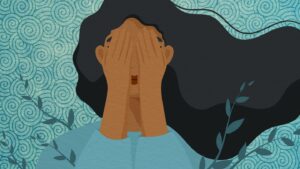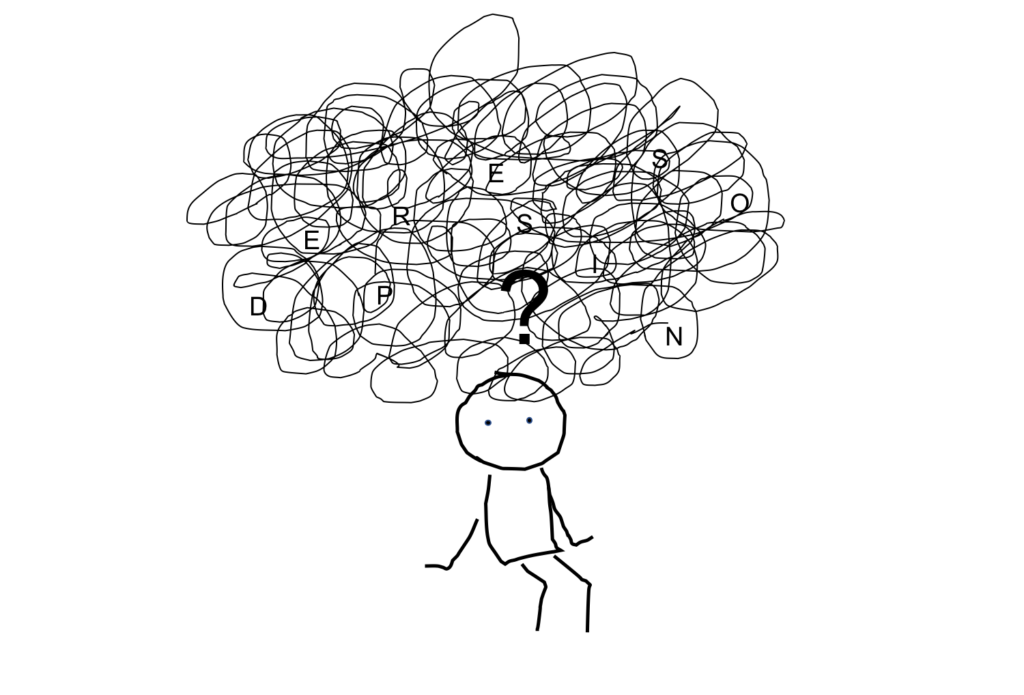Depression is a serious mental illness that can have a devastating impact on people’s lives. However, did you know that there is also a condition known as subsyndromal depression? This is a type of depression that is not as severe as full-blown depression, but it can still be quite debilitating for those who suffer from it. In this blog post, we will discuss what subsyndromal depression is, and we will provide some tips on how to manage it.
Contents
Defining Subsyndromal Depression
Subsyndromal depression is a type of depression that is not as severe as major depressive disorder. However, it can still cause significant distress and impairments in functioning. The symptoms of subsyndromal depression are typically less intense than those of major depression, but they can still be quite debilitating.
There are a few different ways to define subsyndromal depression. One way is to consider it to be a milder form of major depressive disorder. Another way is to think of it as a separate but related condition. Regardless of how you define it, the bottom line is that subsyndromal depression is a real and serious condition that can have a profound impact on people’s lives.
It is important to note that subsyndromal depression is not the same as dysthymia, which is another type of low-grade depression. Dysthymia is a chronic condition that lasts for at least two years, while subsyndromal depression can come and go over time.
Symptoms
As we mentioned above, the symptoms of subsyndromal depression are typically less intense than those of major depression. However, they can still be quite debilitating. Some of the most common symptoms include:
- Feeling down, sad, or hopeless most of the time
- Losing interest in things that used to bring you pleasure
- Feeling tired and fatigued all the time
- Having difficulty concentrating or making decisions
- Sleeping too much or too little
- Experiencing changes in appetite
- Poor concentration or difficulty making decisions
- Feelings of worthlessness or guilt
- Physical symptoms such as headaches or stomachaches
As you can see, the symptoms are similar to those of major depression, but they are typically less severe. The key difference is that people with subsyndromal depression may still be able to function relatively well, whereas those with major depression often cannot.
Difference In Subsyndromal Depression And Other Types Of Depression

It is important to understand that subsyndromal depression is not the same as major depressive disorder. Major depressive disorder is a much more severe condition that can be incredibly debilitating. People with major depression often cannot function normally and may need to be hospitalized.
In contrast, people with subsyndromal depression typically still have some ability to function. However, their symptoms can still be quite distressing and can interfere with their quality of life.
There are other forms of depression as well, such as dysthymia and bipolar disorder. These types of depression are different from subsyndromal depression in that they are more severe and can be more difficult to treat. They are also considered as separate diagnosis under the DSM-V. This makes it different from subsyndromal depression, which is not its own diagnosis but rather a specifier for major depressive disorder.
Causes
The exact cause of subsyndromal depression is not known, but there are a number of factors that may contribute to its development. These include:
- Genetic predisposition: If you have a family history of depression, you may be more likely to develop subsyndromal depression.
- Stressful life events: Traumatic or stressful life events can trigger the onset of subsyndromal depression.
- Biochemical imbalances: Imbalances in certain brain chemicals may play a role in the development of this condition.
- Medical conditions: Some medical conditions can increase your risk for developing subsyndromal depression. For example, if you have a thyroid disorder or an autoimmune disease, you may be more likely to experience this type of depression.
- A history of substance abuse: People who have a history of substance abuse are also at increased risk for developing subsyndromal depression due to the changes that occur in the brain as a result of substance abuse.
As you can see, there are a number of different factors that may contribute to the development of subsyndromal depression. It is important to remember that everyone is different and not everyone will experience the same exact causes. If you think you may be suffering from subsyndromal depression, it is important to seek help from a mental health professional. They will be able to assess your symptoms and come up with a treatment plan that is right for you.
Treatment

If you think you may be suffering from subsyndromal depression, it is important to seek professional help. This condition can be effectively treated with a combination of medication and therapy. If you are struggling with subsyndromal depression, please don’t hesitate to reach out for help. There is no shame in seeking treatment for this condition, and the sooner you get help, the better.
Medication
The good news is that subsyndromal depression is a treatable condition. The most effective treatment for this condition is a combination of medication and therapy.
There are a number of different types of medication that can be used to treat subsyndromal depression. These include:
- Antidepressants: Antidepressants are the most commonly prescribed type of medication for this condition. They can be effective in reducing symptoms, but they may take several weeks to work.
- Mood stabilizers: Mood stabilizers are also sometimes used to treat subsyndromal depression. These medications can help to stabilize your mood and reduce symptoms.
- Anti-anxiety medications: Anti-anxiety medications may be prescribed if you are experiencing anxiety along with your depression. These medications can help to reduce anxiety and improve your overall mood.
Most common prescription drugs for treating depression include Prozac, Zoloft, Paxil, Effexor, Cymbalta, Elavil, and Tofranil.
These medications can be incredibly effective in treating the symptoms of subsyndromal depression. However, it is important to remember that they often take several weeks to start working. These medications also have certain side effects, so it is important to discuss them with your doctor before starting any medication.
Therapy
In addition to medication, therapy can also be an effective treatment for subsyndromal depression. There are a number of different types of therapy that can be helpful for this condition. These include:
- Cognitive-behavioral therapy: This type of therapy helps to change the negative thoughts and behaviors that associate with depression.
- Interpersonal therapy: This type of therapy focuses on your relationships and how they may be affecting your depression.
- Psychodynamic therapy: This type of therapy explores the underlying causes of your depression.
- Support Groups: There are also many support groups available for people suffering from depression. These groups can provide you with valuable support and information. They also allow you to connect with others who are going through similar experiences.
The right type of therapeutic approach will be decided by your respective therapist based upon your requirement and comfort.
Self Help Tips
In addition to medication and therapy, there are also a number of self-help tips that can be helpful for people suffering from depression symptoms. These include:
- Get adequate sleep: Sleep is important for overall health and well-being. Make sure to get at least eight hours of sleep each night.
- Eat a healthy diet: Eating a nutritious diet can help to improve your mood and energy levels.
- Indulge in hobbies: Doing things that you enjoy can help to take your mind off of your depression and improve your mood.
- Exercise regularly: Exercise releases endorphins, which have mood-boosting effects. aim for at least 30 minutes of exercise three to five times per week.
- Avoid alcohol and drugs: Alcohol and drugs can worsen symptoms of depression. If you are struggling with substance abuse, please reach out for help.
- Connect with others: Spending time with friends and family can help to improve your mood. You may also want to join a support group or connect with others who are dealing with depression.
There are many effective treatments for depression. If you are struggling with this condition, please don’t hesitate to reach out for help. With the right treatment, you can start feeling better and living a more fulfilling life.
Conclusion
If you are struggling with subsyndromal depression, please don’t hesitate to reach out for help. Help is available, and there is hope for recovery. Resources: If you or someone you know is struggling with depression, please don’t hesitate to reach out for help.
For more information, please contact MantraCare. Depression is a mental illness characterized by persistent feelings of sadness, hopelessness, and loss of interest in daily activities. If you have any queries regarding Online Depression Counseling experienced therapists at MantraCare can help: Book a trial Depression Therapy session


